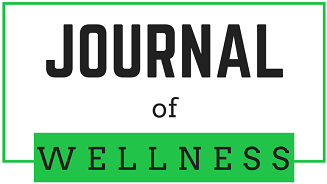
Funder
The author(s) received no specific funding for this work
Conflict of Interest
The author(s) have no conflict of interest to declare for this work
Abstract
Introduction: Poor well-being impacts mental health and subsequently affects personal lives, leads to absenteeism, poor productivity, and compromised patient safety. Frontline healthcare workers are highly vulnerable to COVID-19 pandemic-related mental health strain. This study assessed the well-being and preparedness of frontline healthcare workers in Trinidad and Tobago during the pandemic.
Methods: An online cross-sectional survey was sent to doctors, nurses, and prehospital providers from public and private healthcare sectors. Data was collected from May to June 2020 utilizing a self- administered online platform. The WHO Five Well-being Index (WHO-5) was used to assess well-being. Raw scores less than 13 indicated that participants were at risk for depression. Descriptive statistics and content analysis were used to analyze data.
Results: There were 296 respondents comprising 55.4% (n=164) doctors, 30.1% (n=90) nurses and 14.5% (n=43) prehospital care providers. More than half of participants (55.4%, n=158) scored less than 13 on the WHO-5 indicating that these participants were at risk for developing depression. Approximately 80% of participants did not feel supported by their workplaces. Resident doctors had lower well-being levels (59.4% (n=60), i.e., well-being scores less than 13) compared to attending physicians (45.6% (n=26)), but this was not statistically significant (p = 0.516). Two main categories were identified in the content analysis: factors related to the working environment and coping with COVID-19.
Conclusion: Levels of well-being indicated that more than half of the participants were at risk for developing depression. The findings also suggested that workplaces should provide health workers with the basic protective resources required to perform their roles. It is imperative that health organizations increase awareness of well-being and mental health in workplaces and develop interventions to support healthcare workers.
DOI
10.55504/2578-9333.1115
Recommended Citation
De Freitas, Loren; Dookeeram, Darren; and Motilal, Shastri
(2023)
"Health Professional Well-being and Preparedness During the Covid-19 Pandemic in Trinidad and Tobago: an Online Survey,"
Journal of Wellness: Vol. 5
:
Iss.
1
, Article 3.
DOI: https://doi.org/10.55504/2578-9333.1115
Available at:
https://ir.library.louisville.edu/jwellness/vol5/iss1/3
